Happy Friday, GPODers!
Last Friday I shared my experience at Assiniboine Park in Winnipeg, Manitoba. As promised, I’m back this week to share more photos from this expansive park with several awe-inspiring gardens. If you missed the first post, you can check it out here: Part 1.
Last week I covered the Kitchen Garden and the Sensory Garden. Today’s tour continues through the Indigenous Peoples Garden, the English Garden and the Leo Mol Sculpture Garden.
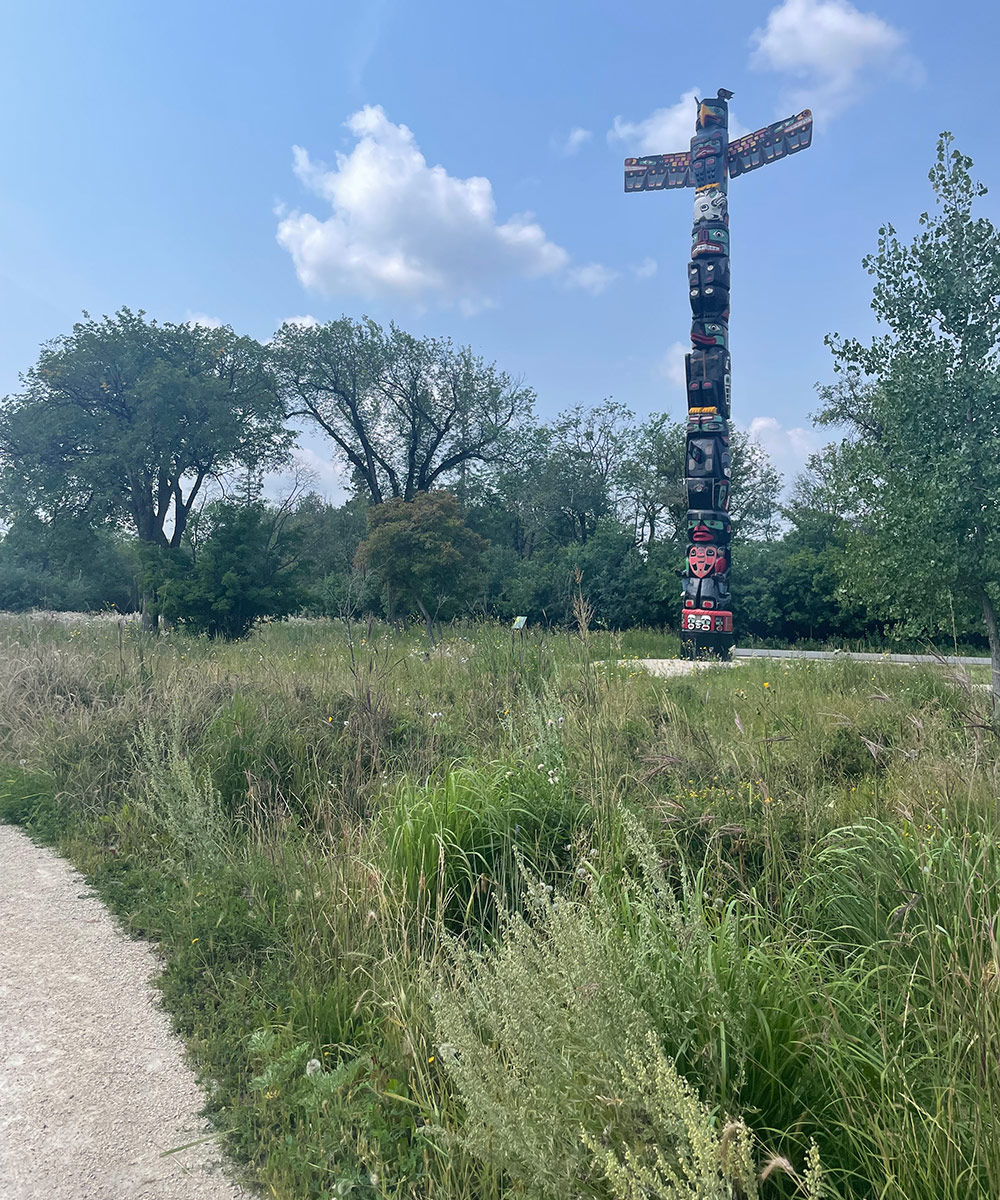 First, the gorgeous grasses found in the Sensory Garden extend on to the Indigenous Peoples Garden, which features naturalistic plantings full of native plants. It also features some fabulous indigenous art, including this stunning totem pole. Though totem poles have become a symbol representative of indigenous people in general, they were actually only created by indigenous groups in the Pacific Northwest.
First, the gorgeous grasses found in the Sensory Garden extend on to the Indigenous Peoples Garden, which features naturalistic plantings full of native plants. It also features some fabulous indigenous art, including this stunning totem pole. Though totem poles have become a symbol representative of indigenous people in general, they were actually only created by indigenous groups in the Pacific Northwest.
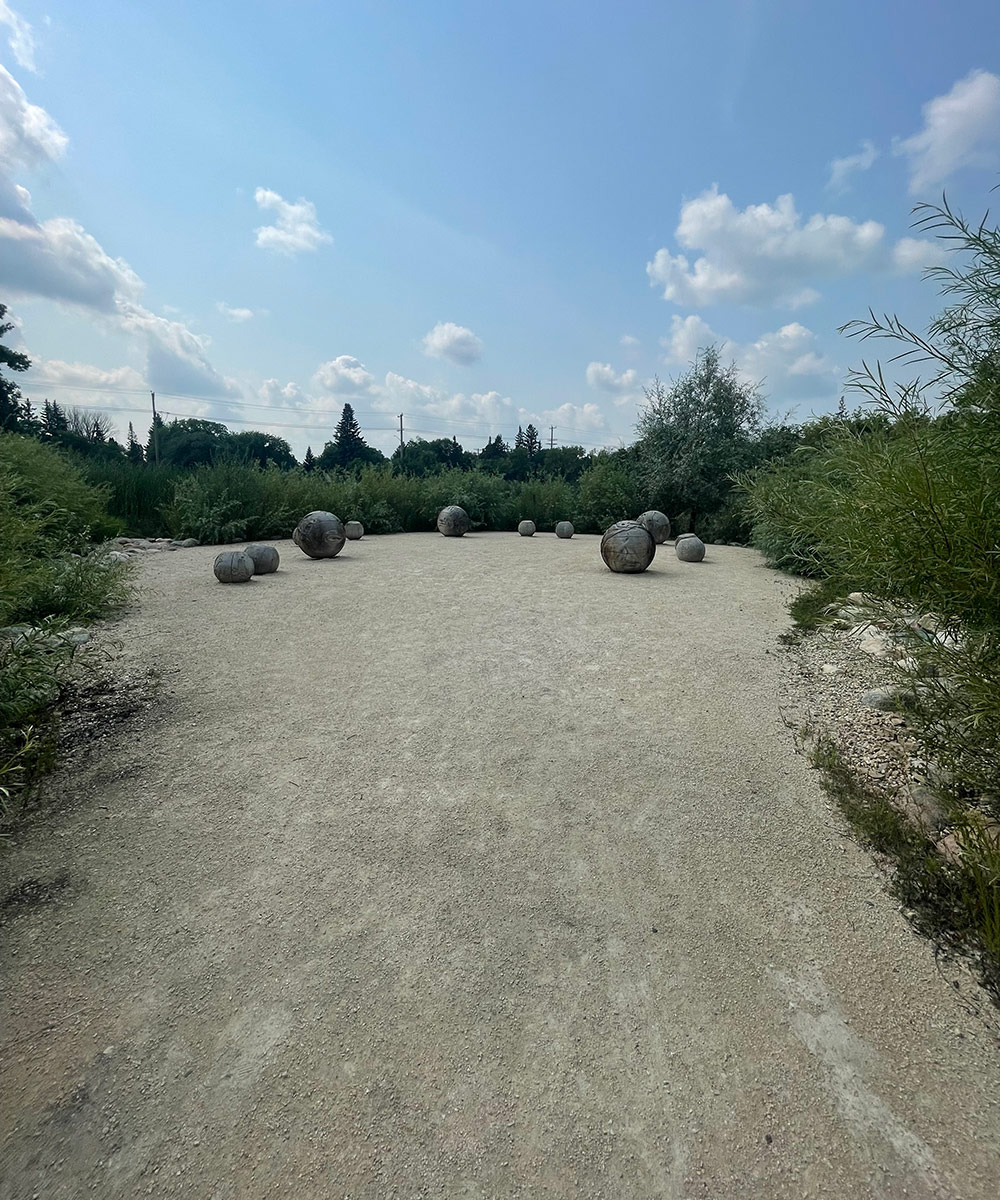 Another stunning art installation in this garden were these large, carved wooden balls.
Another stunning art installation in this garden were these large, carved wooden balls.
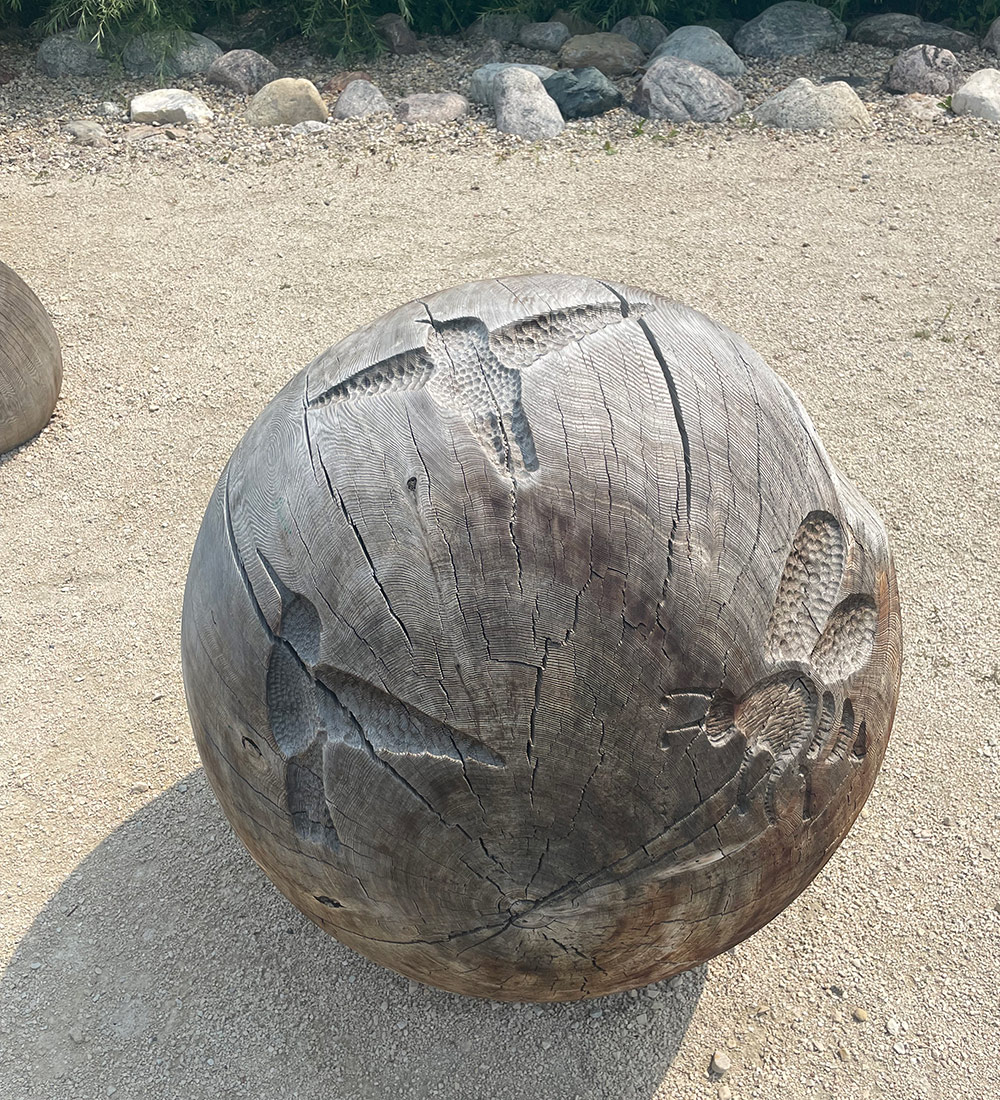 Carved on each ball were different elements of nature. One of my favorites was this one that depicted different pollinators.
Carved on each ball were different elements of nature. One of my favorites was this one that depicted different pollinators.
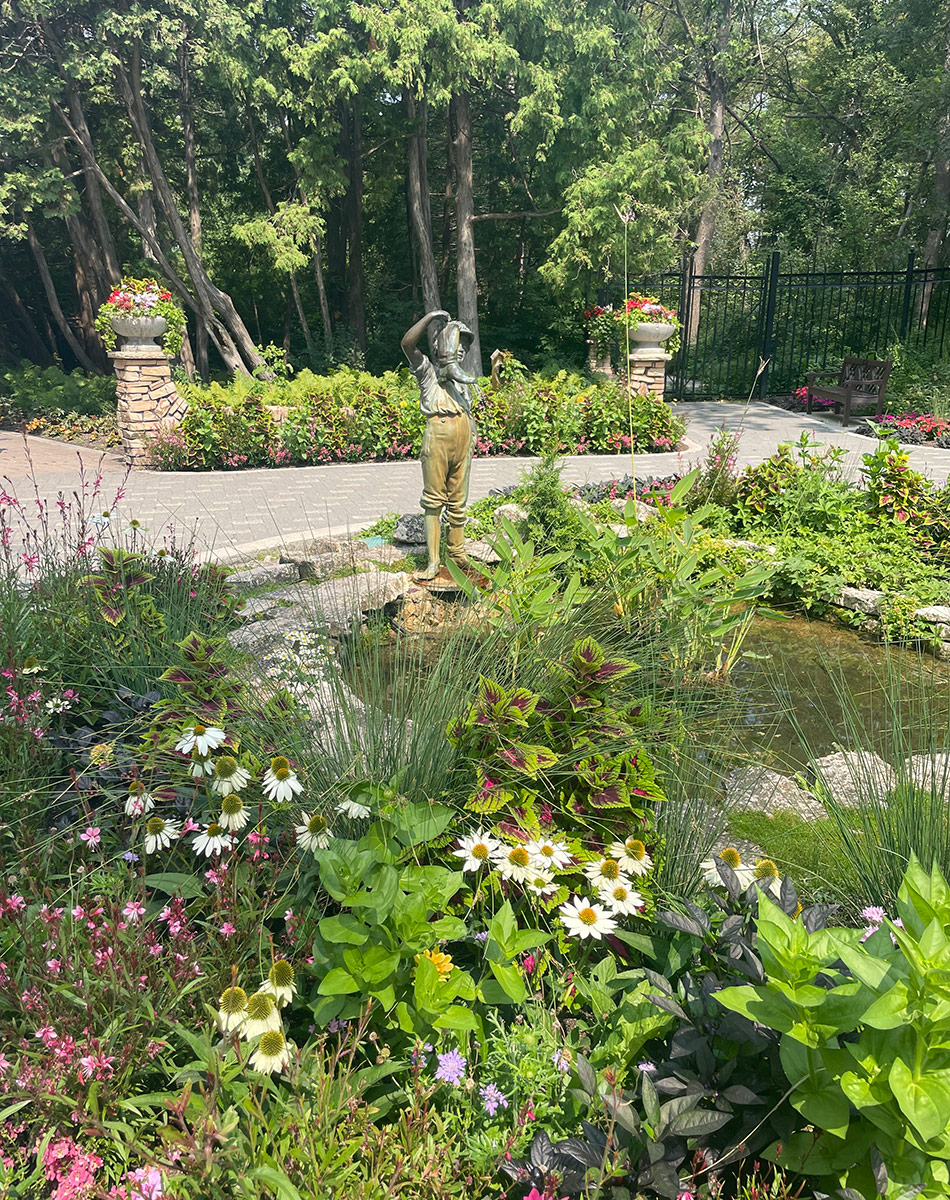 After a long (very hot) walk, I reached the other section of the park, which featured the last two gardens. I can safely say that the long walk was more than worth it because this was the start of the English Garden I saw when I arrived. It’s hard to tell from this photo, but the statue of a young boy is actually part of the fountain! The poor boy has a hole at the tip of his boot, and water is flowing into the pond below.
After a long (very hot) walk, I reached the other section of the park, which featured the last two gardens. I can safely say that the long walk was more than worth it because this was the start of the English Garden I saw when I arrived. It’s hard to tell from this photo, but the statue of a young boy is actually part of the fountain! The poor boy has a hole at the tip of his boot, and water is flowing into the pond below.
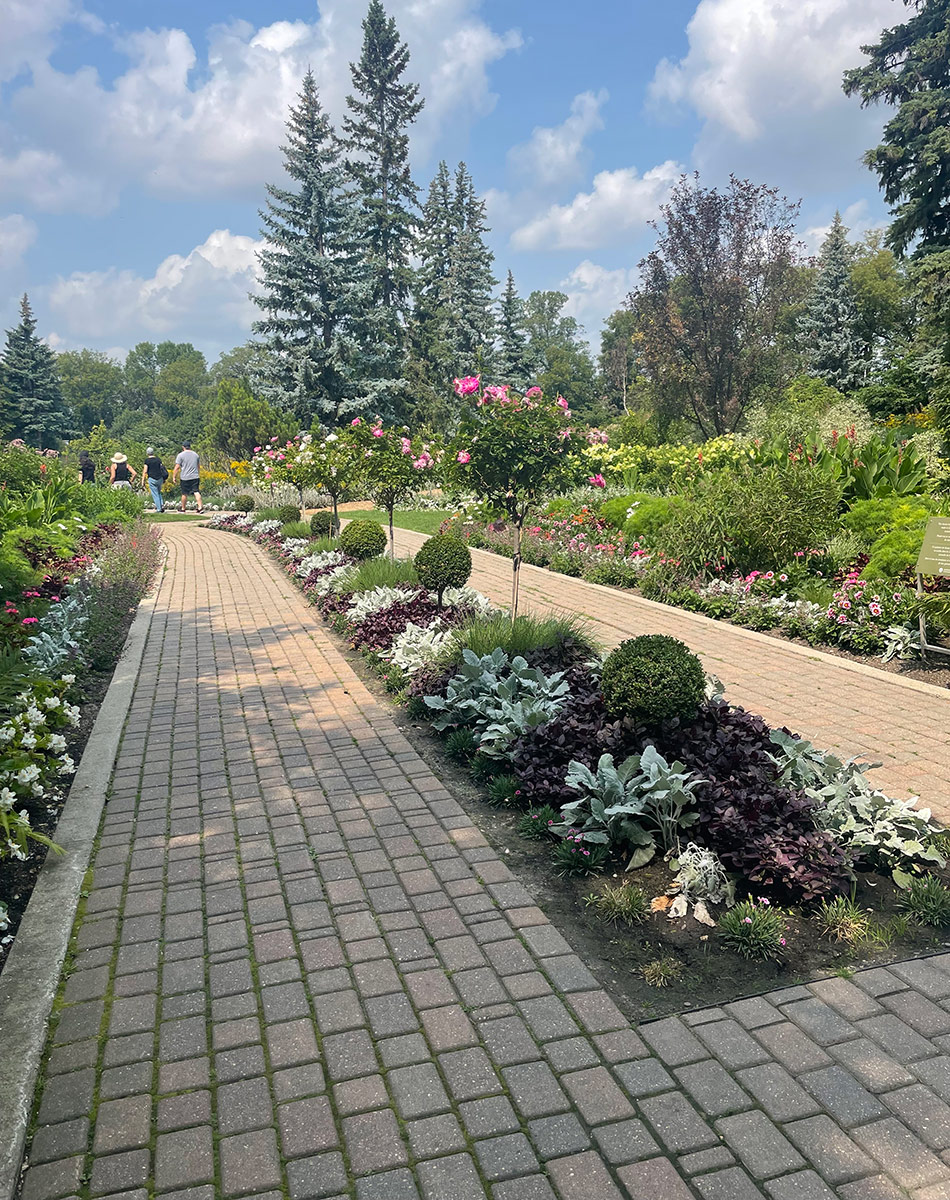 The English Garden featured all the essential elements of a classic, formal English garden: geometric pathways that lead you through the garden with intention, symmetrical plantings that are repeated to an impressive level, and layered borders that are densely planted. This garden was not very big, but it was so packed with plants that this is still a lot to see.
The English Garden featured all the essential elements of a classic, formal English garden: geometric pathways that lead you through the garden with intention, symmetrical plantings that are repeated to an impressive level, and layered borders that are densely planted. This garden was not very big, but it was so packed with plants that this is still a lot to see.
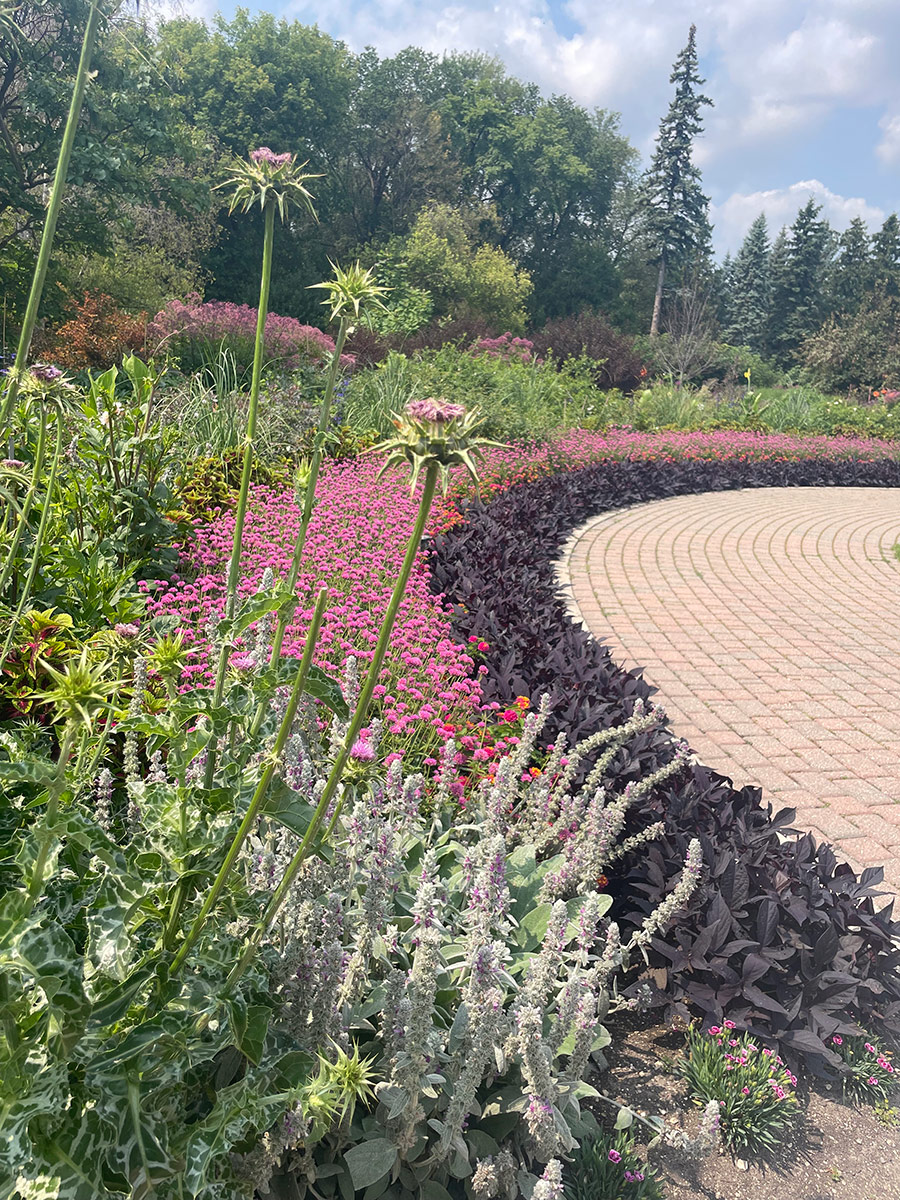 In this incredible border, stunning spires of lambs’ ears (Stachys byzantina and cvs., Zones 4–8) flowers and towering milk thistle (Silybum marianum and cvs., Zones 4–8) mark the start of long rows of ‘Blackie’ sweet potato vine (Ipomoea batatas ‘Blackie’, Zones 9–11 or as an annual) and bright pink gomphrena.
In this incredible border, stunning spires of lambs’ ears (Stachys byzantina and cvs., Zones 4–8) flowers and towering milk thistle (Silybum marianum and cvs., Zones 4–8) mark the start of long rows of ‘Blackie’ sweet potato vine (Ipomoea batatas ‘Blackie’, Zones 9–11 or as an annual) and bright pink gomphrena.
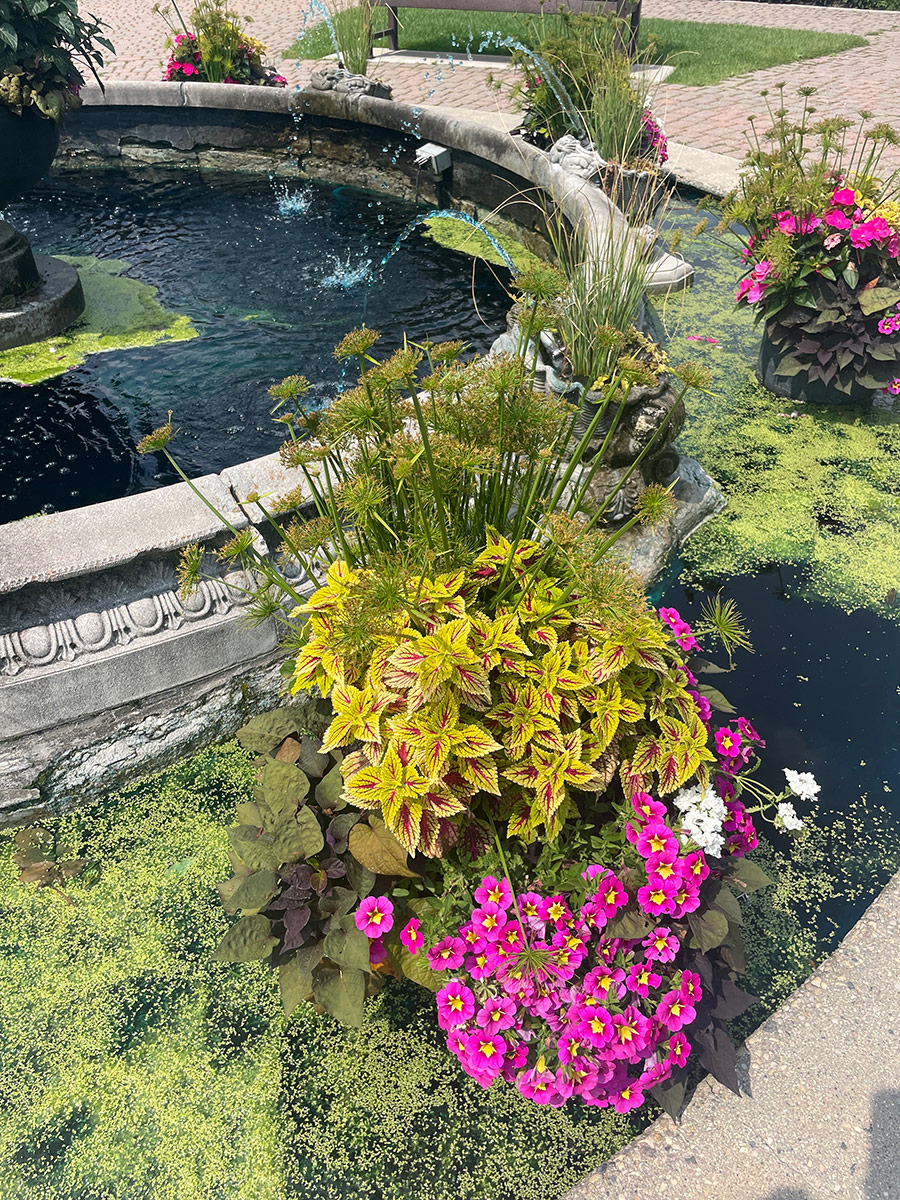 Water features are another classic element of English gardens and are traditionally multi-tiered and ornate fountains. This garden featured several fountains, but incredible containers made this one a particular favorite.
Water features are another classic element of English gardens and are traditionally multi-tiered and ornate fountains. This garden featured several fountains, but incredible containers made this one a particular favorite.
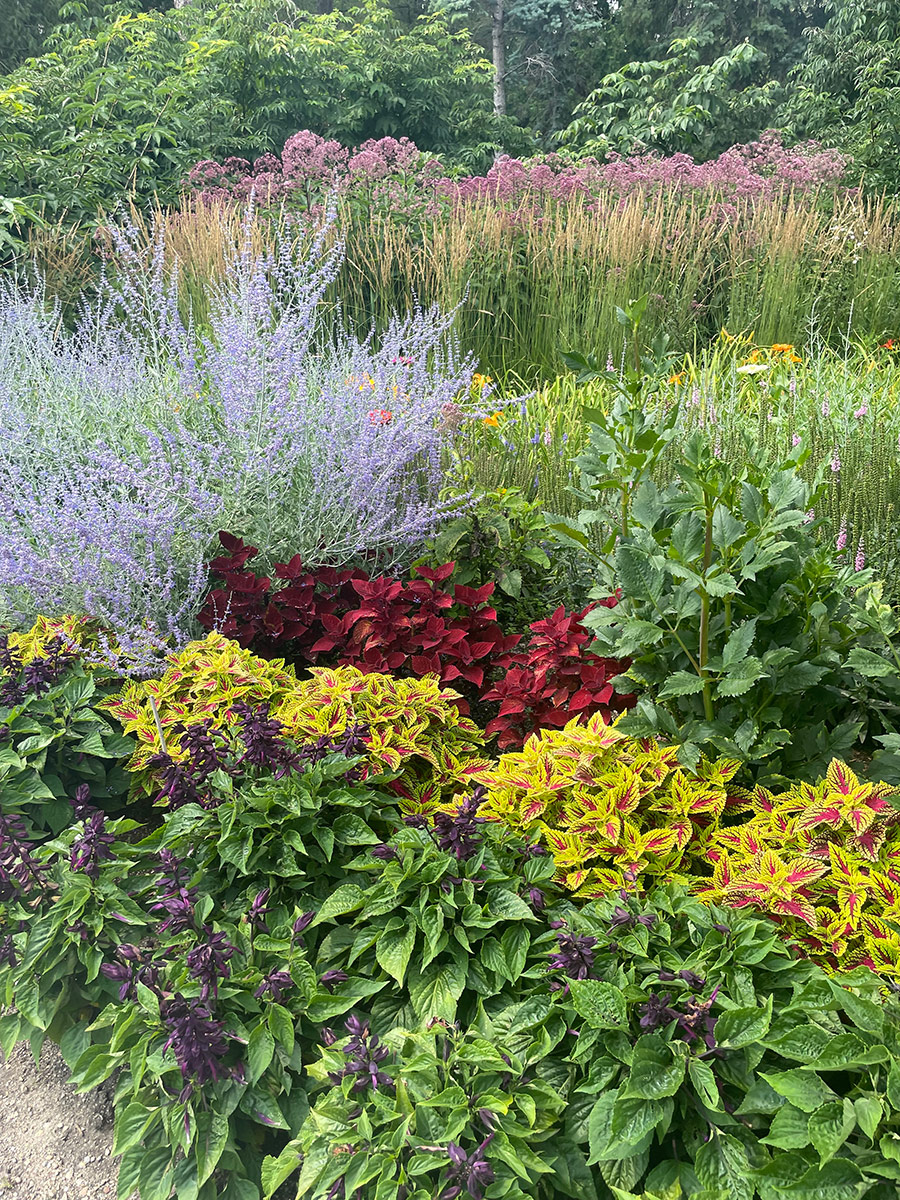 The gardens also did a great job of repeating elements and particular plants so that different beds and designs were still cohesive. This stacked border featured the same bright green and pink coleus that was featured in the fountain containers above.
The gardens also did a great job of repeating elements and particular plants so that different beds and designs were still cohesive. This stacked border featured the same bright green and pink coleus that was featured in the fountain containers above.
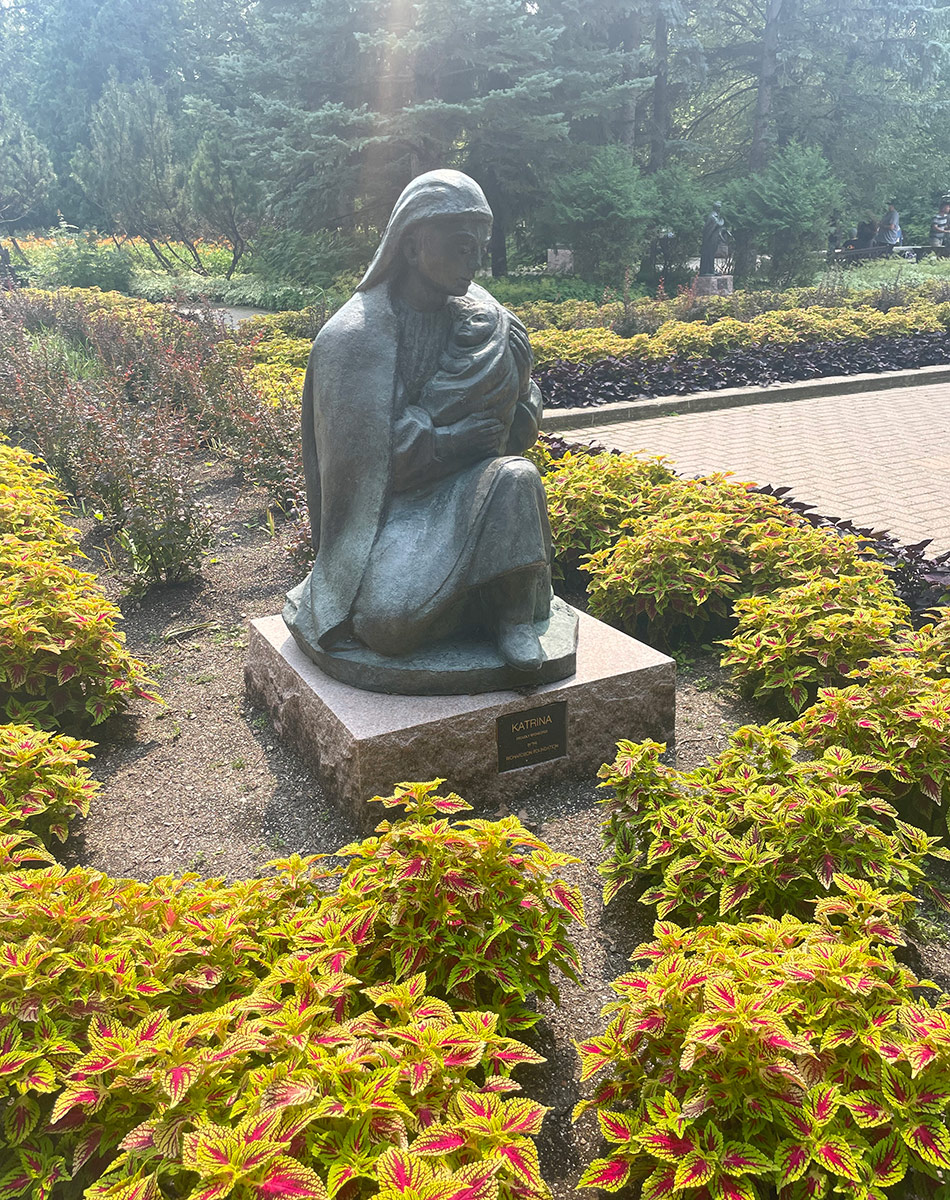 Leonid Molodoshanin (Leo Mol for short) was a Ukrainian-born artist who moved to Canada in 1948 after living in Berlin and the Netherlands. A stained glass artist and painter, but mostly known for his classic portrait sculpture, Mol had an incredible way of crafting and capturing figurines of Ukrainian themes, religious imagery, and wildlife. While the sculptures were definitely the stars in the garden, plants played a beautiful role in this space and the mostly shady beds added interest without distracting from Mol’s incredible work.
Leonid Molodoshanin (Leo Mol for short) was a Ukrainian-born artist who moved to Canada in 1948 after living in Berlin and the Netherlands. A stained glass artist and painter, but mostly known for his classic portrait sculpture, Mol had an incredible way of crafting and capturing figurines of Ukrainian themes, religious imagery, and wildlife. While the sculptures were definitely the stars in the garden, plants played a beautiful role in this space and the mostly shady beds added interest without distracting from Mol’s incredible work.
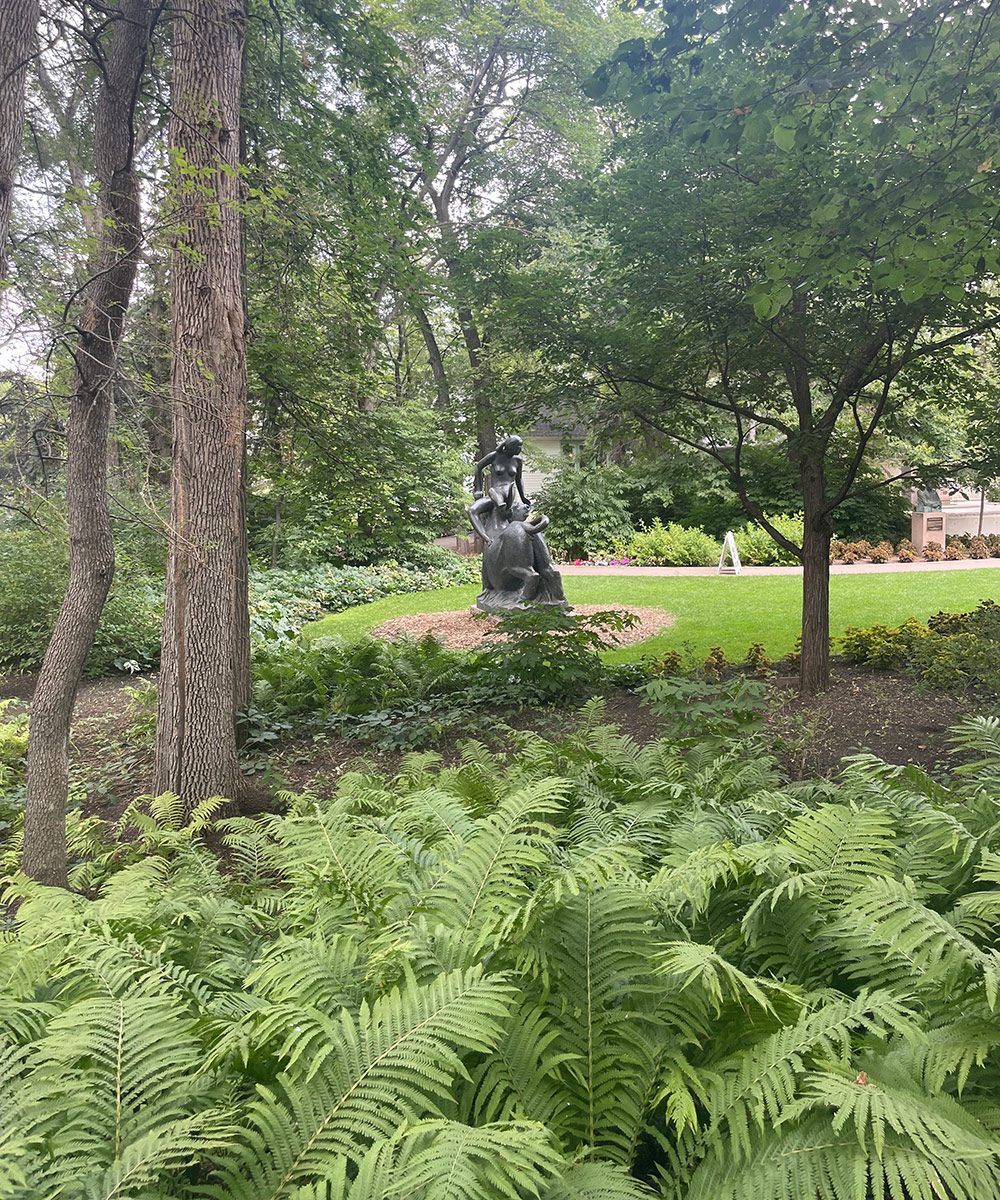 Most of the beds were masses of one plant, like this beautiful blanket of ostrich fern (Matteuccia struthiopteris, Zones 4–8).
Most of the beds were masses of one plant, like this beautiful blanket of ostrich fern (Matteuccia struthiopteris, Zones 4–8).
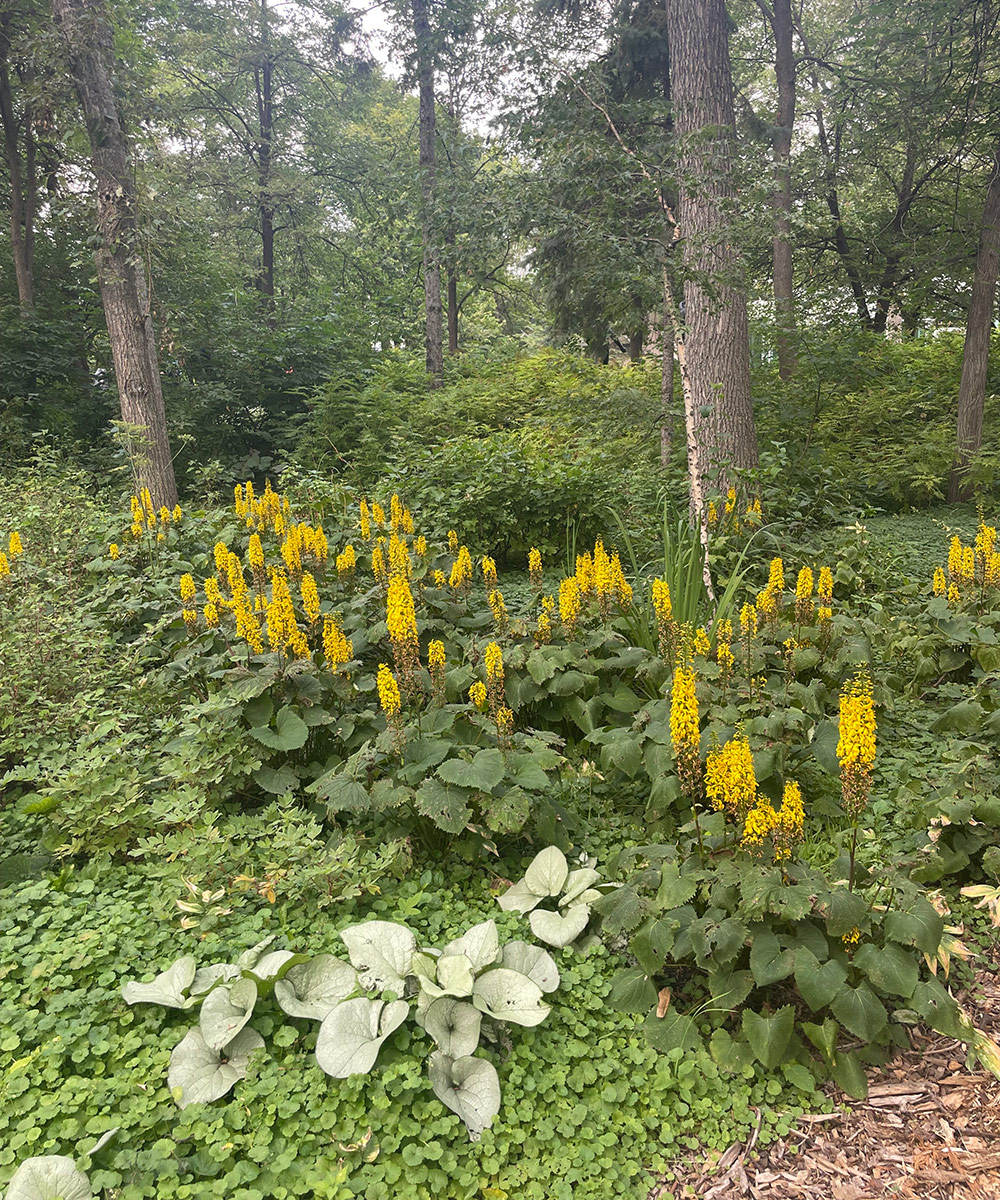 But the gardens weren’t limited to foliage. This mass planting of ligularia (Ligularia spp. and cvs., Zones 4–8) brought a vibrant pop of yellow to the shade.
But the gardens weren’t limited to foliage. This mass planting of ligularia (Ligularia spp. and cvs., Zones 4–8) brought a vibrant pop of yellow to the shade.
Hope you all enjoyed this little tour of a massively impressive park and that you all enjoy your weekend. If you stumble upon any gardens or public plantings, big or small, I’d love to see what you discover.
Have a garden you’d like to share?
Have photos to share? We’d love to see your garden, a particular collection of plants you love, or a wonderful garden you had the chance to visit!
To submit, send 5-10 photos to [email protected] along with some information about the plants in the pictures and where you took the photos. We’d love to hear where you are located, how long you’ve been gardening, successes you are proud of, failures you learned from, hopes for the future, favorite plants, or funny stories from your garden.
Have a mobile phone? Tag your photos on Facebook, Instagram or Twitter with #FineGardening!
Do you receive the GPOD by email yet? Sign up here.




